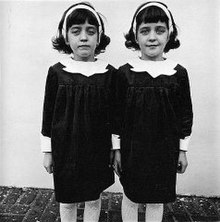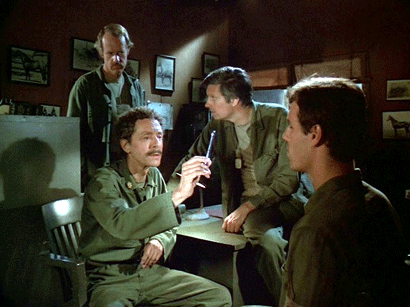 |
| Adrian Raine |
Neurocriminology is a fraught subject, as exemplified in this piece by Adrian Raine. On the one hand, proponents contend that criminal culpability is limited by neurological deficits that reduce one's ability to inhibit impulses. On the other hand, they don't want to use those findings to preventatively incarcerate people who exhibit those deficits. They present strong (really, really strong) evidence that criminal behavior is significantly influenced by genetics but they freak out at the suggestion that perhaps society should limit the breeding opportunities of psychopaths. (Actually that's exactly what long-term incarceration does.)
Some excerpts:
The field of neurocriminology—using neuroscience to understand and prevent crime—is revolutionizing our understanding of what drives "bad" behavior. More than 100 studies of twins and adopted children have confirmed that about half of the variance in aggressive and antisocial behavior can be attributed to genetics. Other research has begun to pinpoint which specific genes promote such behavior.
...
In a landmark 1984 study, my colleague Sarnoff Mednick found that children in Denmark who had been adopted from parents with a criminal record were more likely to become criminals in adulthood than were other adopted kids. The more offenses the biological parents had, the more likely it was that their offspring would be convicted of a crime. For biological parents who had no offenses, 13% of their sons had been convicted; for biological parents with three or more offenses, 25% of their sons had been convicted....
Take the case of Donta Page, who in 1999 robbed a young woman in Denver named Peyton Tuthill, then raped her, slit her throat and killed her by plunging a kitchen knife into her chest. Mr. Page was found guilty of first-degree murder and was a prime candidate for the death penalty.
Working as an expert witness for Mr. Page's defense counsel, I brought him to a lab to assess his brain functioning. Scans revealed a distinct lack of activation in the ventral prefrontal cortex—the brain region that helps to regulate our emotions and control our impulses.
In testifying, I argued for a deep-rooted biosocial explanation for Mr. Page's violence. As his files documented, as a child he suffered from poor nutrition, severe parental neglect, sustained physical and sexual abuse, early head injuries, learning disabilities, poor cognitive functioning and lead exposure. He also had a family history of mental illness. By the age of 18, Mr. Page had been referred for psychological treatment 19 times, but he had never once received treatment. A three-judge panel ultimately decided not to have him executed, accepting our argument that a mix of biological and social factors mitigated Mr. Page's responsibility.Mr. Page escaped the death penalty partly on the basis of brain pathology—a welcome result for those who believe that risk factors should partially exculpate socially disadvantaged offenders. But the neurocriminologist's sword is double-edged. Neurocriminology also might have told us that Mr. Page should never have been on the street in the first place. At the time he committed the murder, he had been out of prison for only four months. Sentenced to 20 years for robbery, he was released after serving just four years.
...
Randomized, controlled trials have clearly documented the efficacy of a host of medications—including stimulants, antipsychotics, antidepressants and mood stabilizers—in treating aggression in children and adolescents. Parents are understandably reluctant to have their children medicated for bad behavior, but when all else fails, treating children to stabilize their uncontrollable aggressive acts and to make them more amenable to psychological interventions is an attractive option.
Treatment doesn't have to be invasive. Randomized, controlled trials in England and the Netherlands have shown that a simple fix—omega-3 supplements in the diets of young offenders—reduces serious offending by about 35%. Studies have also found that early environmental enrichment—including better nutrition, physical exercise and cognitive stimulation—enhances later brain functioning in children and reduces adult crime.
...
There is no question that neurocriminology puts us on difficult terrain, and some wish it didn't exist at all. How do we know that the bad old days of eugenics are truly over? Isn't research on the anatomy of violence a step toward a world where our fundamental human rights are lost?
End excerpts.
The idea that you can "treat" aggression in children and adolescents with pharmaceuticals is not exactly uncontroversial. Some of the most commonly prescribed drugs for aggression in children (e.g., Seroquel) don't seem to be effective. Part of the reason for this is that even the most violent children are violent only rarely, so if you use actual acts of violence as your dependent variable you will run into the same problems as any study of low base rate events. Many of the drugs mentioned by Raine have powerful sedating effects, so that might slow down some violent thugs. So did lobotomies. And in any case, you are not "treating" anything by sedating a violent kid; you are just managing his behaviors.
That omega-3/fish oil study seems pretty intriguing. (More like snake oil, actually -- beware of wondrous findings, especially if they are consistent with your existing beliefs or deepest wishes.) Here's a supplement study that reports a 35% reduction in offending by inmates -- this must be the study to which he is referring in the article.
Finally, it seems pretty clear that "the bad old days of eugenics" are far from over. In the U.S., up to 93% of prenatal diagnoses of Down's Syndrome result in elective termination of the pregnancy (abortion). The American upper middle class can easily employ sex selection (combined with artificial insemination) to get that baby girl they always wanted. As noted above, long-term incarceration of criminals probably has a secondary effect of limiting their potential breeding opportunities. As IVF and preimplantation genetic screening become more commonplace, how do you think potential parents will respond when asked to choose between probable Hi IQ and probable Lo IQ blastocysts (or between those with probable Hi or Lo Callous/Unemotional traits)?
















